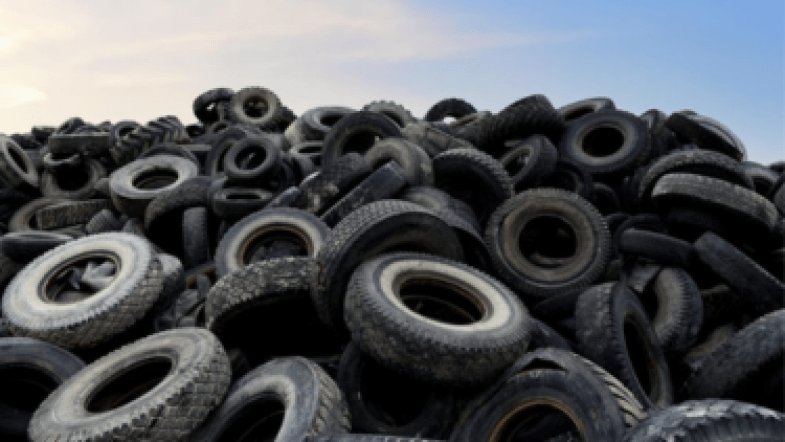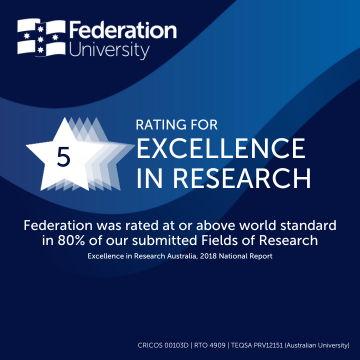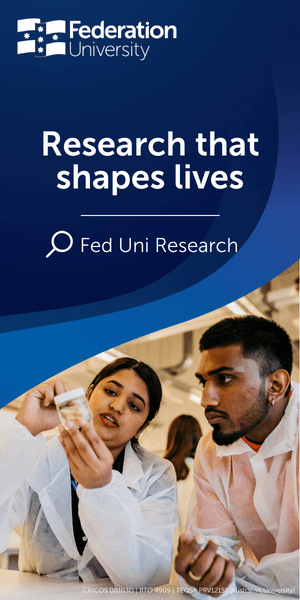
Researchers hope a breakthrough in nanotechnology production could see old car tyres destined for landfill used to manufacture activated carbon for wastewater treatment systems.
The researchers from Federation University and Victoria University are collaborating with Ballarat-based MKPro Engineering's Dr Michael Akindeju to work on a project that will see the development and production of nanoparticles locally for use in their research project.
Dr Akindeju, also an Adjunct Associate Professor at Federation University, says MKPro Engineering's development of a proprietary technology and process for producing nanoparticles means researchers will have easier access to a wide range of nanoparticles that were previously mostly imported.
"Producing nanoparticles has been a cost-prohibitive and tedious process, but with our technology, we have been able to do that at a low-cost threshold. The product nanoparticles are controlled for morphology, size, and size distribution," Dr Akindeju said.
"We have produced activated carbon and done characterisation work to get the right size and shape. Now, we will begin to apply that with industry to see its effectiveness. We are confident that we have done something wonderful here."
Dr Apurv Kumar, from the Institute of Innovation, Science and Sustainability, says the partnership with Dr Akindeju created opportunities to modify the properties of different materials for various projects.
Nanoparticles are tiny particles and a single grain cannot be seen by the human eye. They are widely used in manufacturing, with common materials including carbon-based nanomaterials and titanium dioxide.
By manipulating atoms and molecules, the technology means the surface area of a material can be increased, allowing manufacturers to deliver products with more strength and efficiency. The technology can be found in everything from computer chips and other electronics to textiles, biomedicine, and sunscreen.
"Until now, we have not been able to produce these nanoparticles economically, and most of them have come from another country," Dr Kumar said.
"With Michael, we have been having a lot of discussions on how we can improve some of the chemical processes in terms of efficiency and their economic feasibility – especially for commercial scale. Many of the processes are particularly good at lab scale, but on the commercial scale, they have not been economically feasible."
Dr Kumar says while looking at the possibilities of nanotechnology, he linked up with Dr Nitin Muttil from Victoria University who was keen to explore the possibilities of developing nanoparticles from end-of-life car tyres.
Dr Muttil says there are 59,000 tonnes of old tyres in Australia that mostly end up in landfills yearly. He conservatively estimates this to be 40-50 million tyres.
"Tyres in landfills can be very harmful – there are environmental and social hazards and costs associated with stockpiling them," Dr Muttil said.
"Piled-up tyres can lead to fires, infestations of mosquitos and vermin. The piled-up tyres can also leach contaminants into the water table, so there are potential health and economic hazards."
Australia sent most of its used tyres overseas to countries including China, Malaysia and India until the practice was banned in late 2021.
"At that point, we needed to look at what we could do locally. We had to do something because millions of tyres were accumulating," Dr Muttil said.
The researchers then looked at what could be done with the tyres. Using pyrolysis, the by-products that could be derived included carbon (also called carbon black), oil and steel.
Carbon black is commonly used in bitumen for road construction, for making soft-fall rubber surfaces used in playgrounds and other areas. It can also be used to create activated carbon which is used in water filtration systems found in domestic and commercial applications.
Using MKPro's technology, the researchers have converted the carbon black from waste tyres into activated carbon. Because of the particles' tiny size, they were identified as an ideal material to filter impurities.
Water filtration normally requires activated carbon from coal or coconut shells.
The researchers say the product could potentially be used in wastewater treatment plants, in stormwater applications to prevent heavy metals from leaching into creeks and other receiving water bodies, which could enter the human food chain.
Dr Akindeju, who began his work in nanotechnology in 2010, says producing the nanoparticles in Ballarat is an important advance for manufacturing and regional growth and for supporting the Federation University Co-operative Model.
"The quality control is there, we have validated the process, and now we're looking to expand in Ballarat – that is an important step for us," he said.
"Nanotechnology is expanding into numerous applications with many opportunities."



















